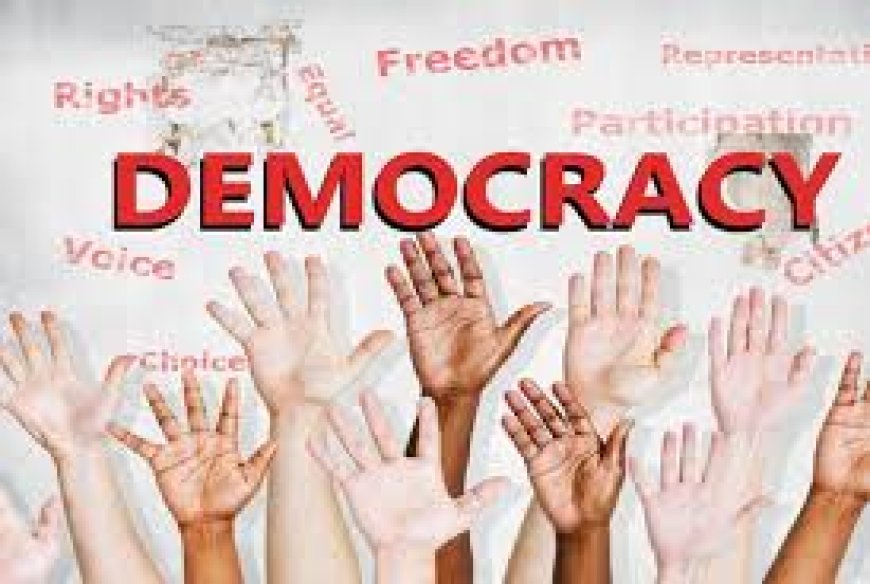Democracy ceases to function when leadership takes over
Political parties are plagued by dynastic politics and personality cults.

Through mass rallies, processions, slogans, and posters echoing their electorate's will, Bangladesh's political parties create a façade of vibrant democracy. However, behind this veneer, democracy dissipates where leadership begins. Power remains centralized in the hands of a select few, with internal democracy largely absent. For decades, party leaders have dominated without significant internal opposition. Party constitutions promising regular elections and systematic MP nominations are often ignored, reducing leaders to quasi-monarchs. These leaders hold power for years or even decades, relinquishing control only when forced by health issues, legal troubles, or death, as shown in an analysis of 25 political parties by this newspaper.
This centralization fosters a personality cult around leaders, stifling internal dissent and hollowing out democracy within institutions meant to uphold it—resulting in lasting consequences for Bangladesh's political culture.
While almost all party constitutions mandate councils every three or four years to elect office bearers, these councils remain largely ceremonial. Political scientist Prof. Rounaq Jahan notes in Political Parties in Bangladesh that true democracy in parties requires internal democratic practices in leadership selection, candidate nomination, and policy-setting—practices sorely lacking in most parties.
“A lack of internal democracy is a significant obstacle to making Bangladesh truly democratic,” Prof. Jahan told The Daily Star. “Political parties must practice democracy within their ranks to institutionalize it nationwide.” Instead, politics is dominated by personality cults and dynastic traditions, sidelining policy and general membership, she explained.
After the restoration of electoral democracy in 1991, political parties failed to establish practices that promote internal democracy, turning elections into mere selections. For instance, during the Awami League (AL) council in 2022, Sheikh Hasina was unanimously re-elected as president without opposition. Similarly, in the BNP’s 2016 council, Khaleda Zia was elected chairperson unopposed, with leadership selection decisions largely centralized.
Centralized MP Nomination
The Representation of the People Order, 1972 mandates grassroots involvement in MP nominations, but major parties flagrantly disregard this requirement. AL announced MP candidates for the 2024 election following interviews with over 3,350 aspirants conducted personally by Sheikh Hasina. Transparency International reported similar violations, where central leadership, rather than grassroots input, decided nominations. The BNP also sidelined grassroots nominations in the 2018 elections, while the Jatiya Party traditionally relies on its leader to make such decisions unilaterally.
A History of Prolonged Leadership
The leadership trends across political parties reveal entrenched centralization. Sheikh Hasina has led the AL unopposed for over four decades, while BNP’s Khaleda Zia has held her position for 40 years, with her son Tarique Rahman positioned as the heir-apparent. Similar patterns exist in other parties, such as the Jatiya Party under Hussein Mohammad Ershad and Islami Andolan Bangladesh under family successors.
Smaller parties exhibit the same tendencies: leaders like Dr. Kamal Hossain of Gono Forum and Dilip Barua of Bangladesher Samyabadi Dal have held power for decades, often unchallenged, with party constitutions routinely circumvented. Though some parties, like the Communist Party of Bangladesh, introduced term limits, adherence remains inconsistent.
This lack of internal democracy perpetuates dynastic politics, personality cults, and centralized decision-making, eroding political accountability. Unless parties commit to democratizing their internal processes, true democracy in Bangladesh will remain an elusive ideal.
What's Your Reaction?





















































































